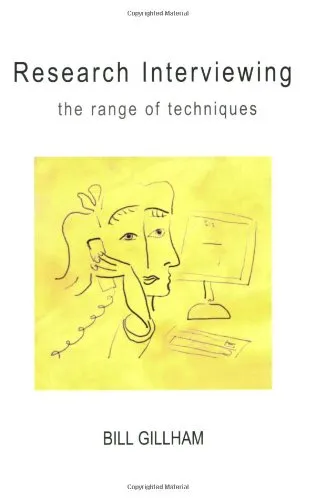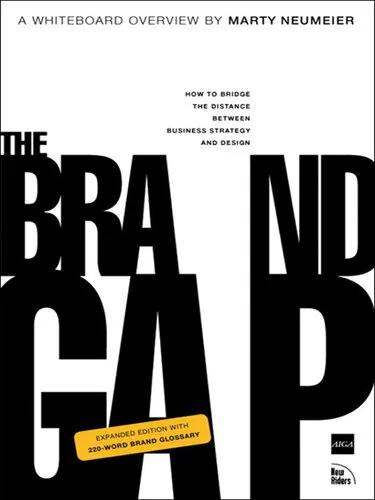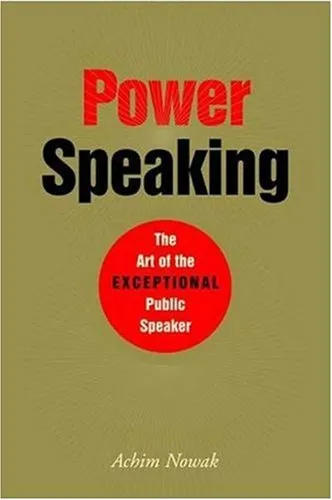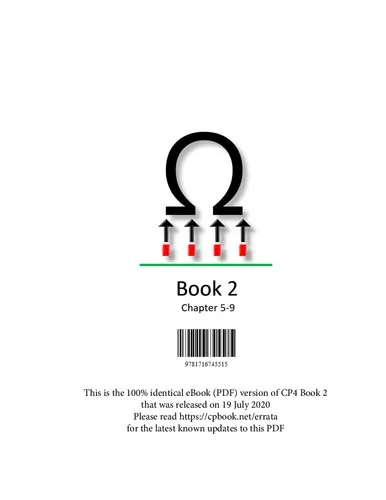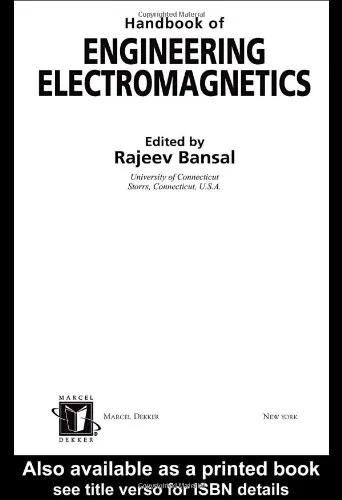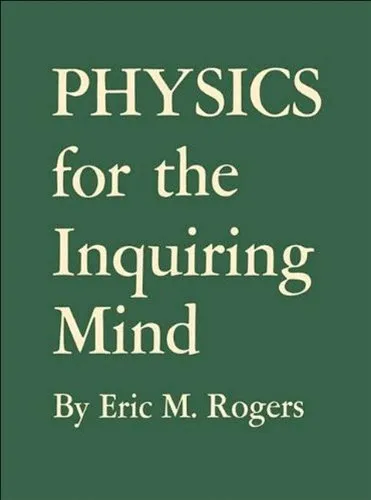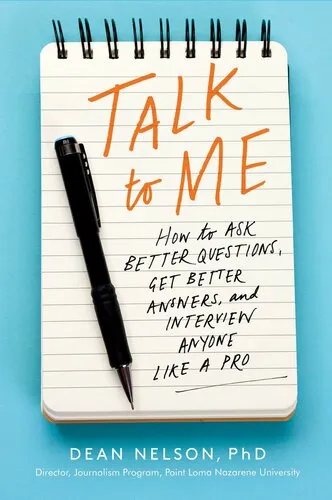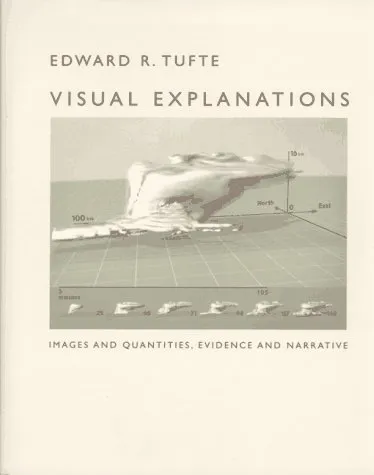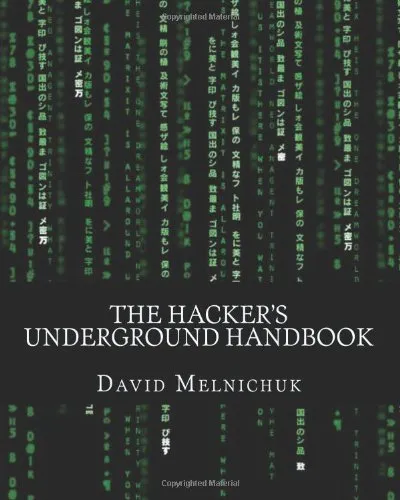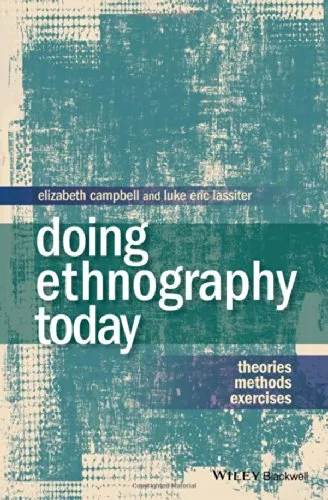Research Interviewing: The Range of Techniques
4.0
بر اساس نظر کاربران

شما میتونید سوالاتتون در باره کتاب رو از هوش مصنوعیش بعد از ورود بپرسید
هر دانلود یا پرسش از هوش مصنوعی 2 امتیاز لازم دارد، برای بدست آوردن امتیاز رایگان، به صفحه ی راهنمای امتیازات سر بزنید و یک سری کار ارزشمند انجام بدینکتاب های مرتبط:
معرفی کتاب: Research Interviewing: The Range of Techniques
کتاب Research Interviewing: The Range of Techniques یکی از آثار برجسته من، بیل گیلهم، در حیطه تحقیقات کیفی است. این کتاب منبعی مهم و جامع برای کسانی است که در زمینه انجام مصاحبههای تحقیقاتی فعالاند و به دنبال درک عمیقتری از تکنیکها و روشهای مربوط به مصاحبه هستند. این اثر نه تنها اصول و فرآیندهای پایه در انجام مصاحبه را توضیح میدهد، بلکه به طیف گستردهای از استراتژیها و روشهای پیشرفته نیز میپردازد.
خلاصهای تفصیلی درباره کتاب
کتاب Research Interviewing: The Range of Techniques همه چیز را از مبانی مصاحبههای تحقیقاتی تا تکنیکهای پیچیدهتر پوشش میدهد. این اثر از اصول اولیه، مانند طراحی یک مطالعه تحقیقاتی، تدوین سوالات مصاحبه و انتخاب نمونهها، آغاز میشود و در ادامه به جزئیات بیشتر تکنیکهای خاص مختلف میپردازد.
در این کتاب، تاکید ویژهای بر Practical Application شده است؛ یعنی خوانندگان نه تنها میتوانند اصول را فرا بگیرند، بلکه از نحوه عملی کردن آنها در پروژههای خود نیز اطلاعات کسب میکنند. فصول کتاب مطالبی همچون Semi-Structured Interviews، In-depth Interviews و حتی Group Interviews را توضیح میدهند و محدودیتها، چالشها و روشهای مدیریت هرکدام بررسی میشود.
علاوه بر این، این اثر یک راهنمای ایدهآل برای تازهکارها و حتی کسانی است که تجربه بیشتری دارند و به دنبال توسعه دانش و تکنیک خود در مصاحبههای تحقیقاتی هستند.
نکات کلیدی کتاب
- ارائه توضیحات کامل در مورد انواع مختلف روشهای Interviewing.
- تاکید بر چگونگی طراحی سوالات مناسب و تاثیرگذار در مصاحبه.
- تحلیل مزایا و معایب تکنیکهای مختلف مصاحبه، از جمله Structured و Unstructured Interviews.
- ارائه نکات عملی برای مدیریت مصاحبههای کوتاه و بلند.
- استفاده از مطالعات موردی واقعی برای ارائه راهکارهایی جهت حل چالشهای عمومی مصاحبهگرها.
جملات معروف از کتاب
"The interview is not just about asking questions but about creating a dialogue of value and discovery between the researcher and the participant."
"Effective interviewing is an art balanced with technique; understanding the person as much as the purpose."
"Listening is the cornerstone of any meaningful Interviewing process."
چرا این کتاب اهمیت دارد؟
با وجود منابع متعدد در زمینه تحقیقات کیفی، بسیاری از آنها به طور دقیق بر مصاحبه تمرکز نمیکنند، در حالی که این ابزار یکی از پایههای مهم در تحقیقات انسانی محسوب میشود. کتاب Research Interviewing: The Range of Techniques با تاکید بر جنبههای علمی و عملی مصاحبه به دانشجویان، پژوهشگران و کسانی که در پی انجام پروژههای تحقیقاتی هستند کمک میکند تا با دانش و اعتماد به نفس بیشتری به اجرای این بخش مهم تحقیق بپردازند.
علاوه بر این، این کتاب نیازهای روزافزون جامعه تحقیقاتی را که به دنبال روشهایی موثرتر و متنوعتر برای گردآوری دادهها هستند برآورده میکند. از کلاسهای دانشگاه گرفته تا حرفههای تحقیقاتی پیشرفته، این اثر راهنمای ضروری برای هر کسی است که میخواهد در هنر مصاحبهگری تحقیقاتی مهارت پیدا کند.
Introduction to 'Research Interviewing: The Range of Techniques'
Research interviewing is one of the most critical methods for gathering qualitative data and generating deep, insightful understanding across numerous fields of study. My book, 'Research Interviewing: The Range of Techniques', is designed to address the methods, nuances, and practicalities of conducting effective interviews for research purposes. This comprehensive guide takes readers on a journey to master the art of conducting interviews, whether for academic, organizational, or other professional projects.
With a focus on flexibility, reflexivity, and ethics, this book underscores the importance of understanding context, preparation, and the active listening skills required for meaningful interviews. By covering a wide variety of interviewing techniques, from structured interviews to narratives and conversational approaches, the book equips researchers with tools that meet the diverse needs of their studies.
Detailed Summary of the Book
In 'Research Interviewing: The Range of Techniques', I touch upon the full spectrum of interviewing methodologies, offering both theoretical insights and actionable strategies. The book begins by addressing the fundamental principles of research, emphasizing the value of interviews as a knowledge-gathering tool. Moving beyond theory, the book dives deep into the technical aspects of interviewing, such as question formulation, sequencing, and the dynamics of interviewer-interviewee interaction.
A special emphasis is placed on the different types of interviews, including structured, semi-structured, unstructured, narrative, and group interviews. The book progresses by exploring advanced topics such as handling difficult interviewees, managing culturally sensitive topics, and building trust during the interview process. Moreover, practical examples and case studies are included to demonstrate how these techniques are applied in real-world research projects.
The concluding chapters focus on the ethical considerations in interviewing, including confidentiality, informed consent, and the proper treatment of participants' data. These issues are presented with actionable guidelines to ensure that researchers respect the dignity and rights of their interview subjects while maintaining academic rigor.
Key Takeaways
- Understand the spectrum of research interviewing methodologies, from structured to narrative approaches.
- Master the art of crafting effective interview questions to elicit rich, meaningful data.
- Gain practical insights into managing the interpersonal dynamics of interviews.
- Learn strategies for dealing with logistical and ethical challenges in research interviewing.
- Develop a deeper appreciation for reflexivity, empathy, and adaptability in the interviewing process.
Famous Quotes from the Book
"An interview is not merely a conduit for answers; it is a dynamic process that shapes and reshapes understanding—for both the researcher and the participant."
"The quality of any interview is inseparably linked to the quality of human engagement it cultivates."
"Every question you ask carries an implicit relationship—a balance of power, trust, and purpose. Respect this balance to unlock the true potential of your interviews."
Why This Book Matters
In an era of fast-paced decision-making and data-driven strategies, the role of research interviews cannot be overstated. Qualitative research, particularly through interviewing, gives voice to nuanced experiences and perspectives that are often overlooked in quantitative studies. This book is essential for students, academics, and professionals seeking to become proficient in extracting and interpreting contextual information through well-executed interviews.
By offering a comprehensive understanding of the entire process—planning, executing, and analyzing interviews—this book bridges the gap between theory and practice. It reminds readers that, at its heart, research interviewing is an art form grounded in human connection. Moreover, the attention to ethics and the practical challenges of interviewing prepares readers to undertake their work with fairness, sensitivity, and credibility.
Ultimately, 'Research Interviewing: The Range of Techniques' has become a cornerstone text in the field. Whether this is your first venture into research interviewing or you're looking to refine your skills, the book provides tailored tools, insights, and confidence to make your projects meaningful and impactful.
دانلود رایگان مستقیم
شما میتونید سوالاتتون در باره کتاب رو از هوش مصنوعیش بعد از ورود بپرسید
دسترسی به کتابها از طریق پلتفرمهای قانونی و کتابخانههای عمومی نه تنها از حقوق نویسندگان و ناشران حمایت میکند، بلکه به پایداری فرهنگ کتابخوانی نیز کمک میرساند. پیش از دانلود، لحظهای به بررسی این گزینهها فکر کنید.
این کتاب رو در پلتفرم های دیگه ببینید
WorldCat به شما کمک میکنه تا کتاب ها رو در کتابخانه های سراسر دنیا پیدا کنید
امتیازها، نظرات تخصصی و صحبت ها درباره کتاب را در Goodreads ببینید
کتابهای کمیاب یا دست دوم را در AbeBooks پیدا کنید و بخرید
1303
بازدید4.0
امتیاز0
نظر98%
رضایتنظرات:
4.0
بر اساس 0 نظر کاربران
Questions & Answers
Ask questions about this book or help others by answering
No questions yet. Be the first to ask!
